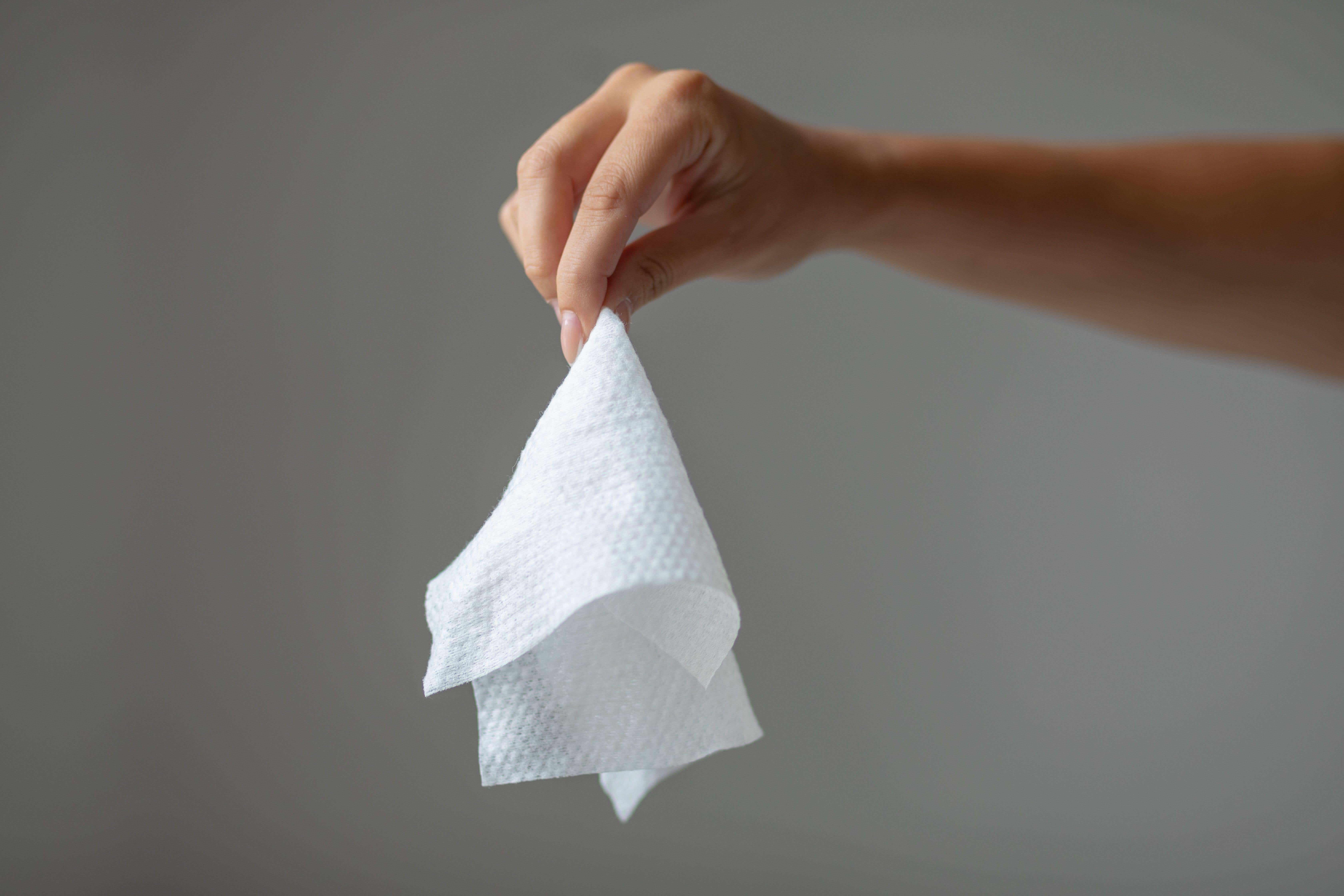I know how hard it is to kick the wet wipes habit
I couldn’t have brought up two children without baby wipes, writes Fiona McGowan. Would it be wrong to stock up before they’re banned?


It would be hard to find a parent in Britain who hasn’t used wet wipes on their baby’s bum – and felt a pang of guilt for doing it.
I can’t imagine parenting life without them, and I’m a socially and environmentally conscious person. I reuse plastic bags. I compost my veggie waste. I certainly don’t flush wet wipes down the loo. But, confession time, I simply can’t get by without them.
The news that environment secretary Thérèse Coffey has announced a plan to ban them – for a third time in the last five years, to be clear – did make me think, about time, too. And also: should I start stocking up?
My children are now teenagers, and well out of the wet wipes zone, but they still have their uses on a family day out. I pity the poor new mothers who will have to bring up baby without them. Mumsnet, unsurprisingly, is a hotbed of fury about the possible ban, with a counterpoint of eco mums weighing in with their “just take a flannel around in a Tupperware or a plastic tub and wash it when you get home”-type advice.
I grew up in the Seventies when nappies were still things that your mum hung out on the washing line or draped over the airer in the living room. I am 99 per cent sure that mine never used baby wipes or disposable nappies. I suspect that there was a fair amount of handwashing of nappy cloths going on, too. As a family, we spent a lot of time out and about, with my parents pushing prams and non-offroad buggies along muddy tracks and across fields.
Of the fairly paltry selection of images I have from those days, there seems to be a large proportion of pictures of us babies with extremely full nappies. So perhaps it was more of a culture of: leave it on till we get home. Nappy rash a-go-go. Might also explain why potty training was imposed at such a young age, too.
Baby wipes, then, are a hot topic. The Marine Conservation Society found that 90 per cent of wipes sold in the UK contain plastics. To be fair, even the ones that don’t have plastic cause pretty much the same issues. It’s all part of the swirling filth surrounding the state of our waterways and coastal waters. Not one of our rivers and waterways has a clean bill of health, and the sewage being pumped into the sea in Cornwall, where I live, can make you physically sick.
For this, the water companies blame the consumers. Of course they do. Down in west Cornwall, we frequently receive victim-blaming letters from South West Water, claiming that the regular belchings-out of sewage into the sea are due to people flushing wet wipes down the loo. “It’s them bleddy tourists,” say the annoyed locals, who shell out for higher water bills than most other parts of the country.
The gigantic fatbergs that collect in the sewers beneath our cities are held together with wet wipes. A giant “two tennis court”-sized island of baby wipes was recently found floating in the Thames. The infamous Whitechapel fatberg – a giant toxic plug of congealed grease and rubbish and, yes, undecomposed wet wipes which had built up in a sewer beneath the East End – was so remarkable, a slice of it is now part of the Museum of London’s permanent collection.
“Just don’t flush” is a campaign that has singularly failed to have any impact on consumer behaviour. Amazingly, in very large part due to the extraordinary efforts of the likes of Surfers Against Sewage, flushed-away sanitary products are no longer such a huge issue. But it does mean that every public loo in the country has a sanitary bin right next to the toilet. Those bins have to be emptied daily and the contents incinerated or dumped in landfill.
Needless to say, environmental campaigners have their doubts about whether a wet wipes ban will ever happen. Sian Sutherland, co-founder of A Plastic Planet and PlasticFree says: “Wet wipes should, of course, be banned – but this feels more like an attempt to spin a news story than a serious strategy to turn off the plastic tap.”
And, as clean water campaigner Feargal Sharkey says, with an eyeroll: “We’ve heard it all before.”
In a future without baby wipes, I guess we could clean our babies’ bottoms with loo roll. I mean, we wipe our own bottoms with it. Might be a little bit rougher. Might be a bit less fragrant. Or take a few flannels out with you – or try “reusable wipes”, as such things are now being marketed; sales are up 20 per cent, apparently.
And back at home, we’d have to get back into the good old-fashioned flannel-and-water combo.
Wipe, rinse, handwash, hang to dry.








Join our commenting forum
Join thought-provoking conversations, follow other Independent readers and see their replies
Comments